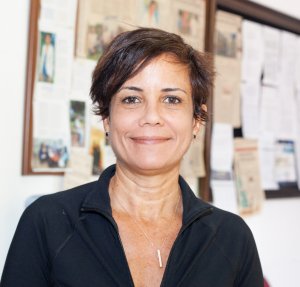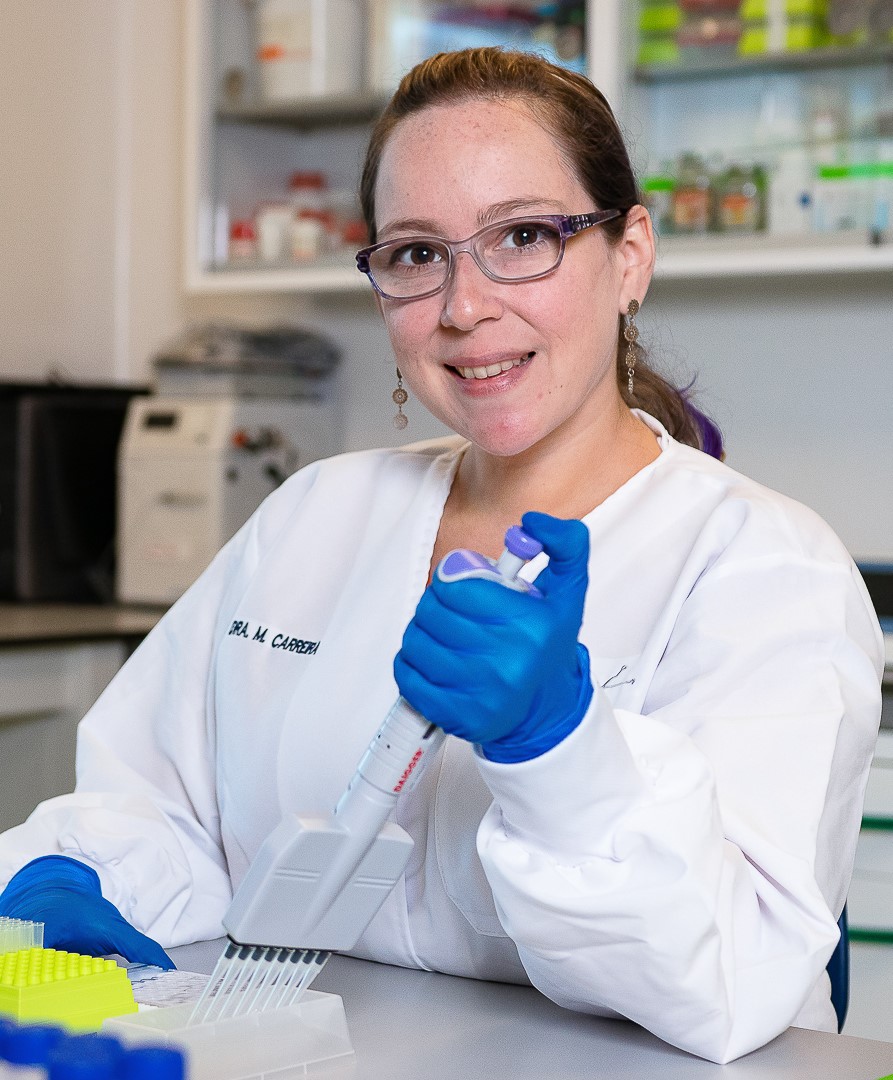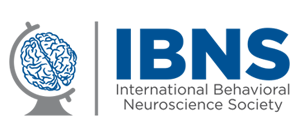IBNS Keynotes
Presidential Lecture: Lisa Saksida. Cross-species Cognition, Collaboration, Community, and Co-clinical Trials
 Lisa Saksida, PhD, FRSC, FCAHS is the Tier 1 Canada Research Chair in Translational Cognitive Neuroscience, Co-Scientific Director of BrainsCAN—a $66M Canada First Research Excellence Fund program in cognitive neuroscience—and with Tim Bussey co-directs the Translational Cognitive Neuroscience Laboratory at Western University. She is a Fellow of the Canadian Academy of Health Sciences, the Royal Society of Canada and the Canadian Institute for Advanced Research. Dr. Saksida has the privileges of Fellow Emerita at Newnham College, Cambridge, in recognition of distinguished contributions to the education, learning, research or governance of the College for 15 years, and in 2020 was selected as one of Canada’s Top 100 Most Powerful Women by the Women’s Executive Network, in recognition of her efforts to improve equity, diversity and inclusion as well as her mentorship of other women. Lisa Saksida, PhD, FRSC, FCAHS is the Tier 1 Canada Research Chair in Translational Cognitive Neuroscience, Co-Scientific Director of BrainsCAN—a $66M Canada First Research Excellence Fund program in cognitive neuroscience—and with Tim Bussey co-directs the Translational Cognitive Neuroscience Laboratory at Western University. She is a Fellow of the Canadian Academy of Health Sciences, the Royal Society of Canada and the Canadian Institute for Advanced Research. Dr. Saksida has the privileges of Fellow Emerita at Newnham College, Cambridge, in recognition of distinguished contributions to the education, learning, research or governance of the College for 15 years, and in 2020 was selected as one of Canada’s Top 100 Most Powerful Women by the Women’s Executive Network, in recognition of her efforts to improve equity, diversity and inclusion as well as her mentorship of other women.
Dr. Saksida completed an interdisciplinary PhD at Carnegie Mellon University in 1999. She then held a Fogarty Fellowship at the National Institute of Mental Health in the US, leaving this after a year to take up the Pinsent Darwin Research Associateship at the University of Cambridge. She was appointed to a faculty position in the Department of Experimental Psychology in Cambridge in 2001, eventually making her way to Full Professor of Cognitive Neuroscience in the same department. She returned to her native Canada from Cambridge early in 2016.
Dr. Saksida’s overarching research goal is to understand brain circuits and mechanisms underlying cognition in the healthy brain and in disease. The circuits she focuses on are those most often implicated in a range of disorders that are of immense relevance to society today, including Alzheimer’s disease and schizophrenia. Her work involves theoretically rigorous, mechanistic studies of cognition in disease models, using pharmacological, genetic, and molecular manipulations along with sophisticated analysis of cognition and behaviour. Using these methods, she investigates fundamental questions about the neurobiological underpinnings of cognition, and how the answers to these questions can best be translated to treatments for patients. She has published over 170 papers in these domains in high impact journals, which have been cited over 18,000 times.
Beyond her theoretical and scientific contributions, Dr. Saksida is also deeply committed to fostering the real-world impact of scientific discovery. She has made innovative contributions to improving the translation of mechanistic discoveries in mouse models relevant to neurodegenerative and neuropsychiatric disease to patients, as well as to developing open science practices and platforms for accelerating scientific progress. A key example of this is her co-invention of a ground-breaking cognitive assessment platform using touchscreen technology in mouse models. The touchscreen system is now being used in over 400 institutions worldwide. More recently, Dr. Saksida and her team have paired touchscreen-based tests of cognition in mice with cutting-edge technologies to record or manipulate neuronal, glial or neurochemical activity, making it possible to match—millisecond by millisecond—what is happening in the brain with human-relevant cognition. To further increase impact, Dr. Saksida and her colleagues have created mousebytes.ca, the first open-access database and repository for structured cognitive data obtained in mice where raw data can be stored, shared, combined and reanalyzed to extract more from the data, and complete information about these tools has been made openly accessible to researchers worldwide via touchscreencognition.org. This ecosystem forms the basis of the Mouse Translational Research Accelerator Platform (MouseTRAP). A $24M New Frontiers in Research Fund project centered around using this platform to improve drug evaluation pipelines was announced in April 2023.
Keynote Lecture: Stephen Maren. Hippocampal Engrams and Fear Relapse
 Dr. Stephen Maren is a University Distinguished Professor and Charles H. Gregory Chair of Liberal Arts in the Department of Psychological and Brain Science at Texas A&M University. He is an internationally recognized scholar who has made foundational contributions to our understanding of the neurobiology of emotional learning and memory. Dr. Maren has authored over 180 publications and has been recognized with numerous professional awards including the Distinguished Scientific Award for an Early Career Contribution to Psychology from the American Psychological Association (APA), the Donald O. Hebb Distinguished Scientific Contributions Award (APA), and the W. Horsley Gantt Medal (Pavlovian Society). Dr. Stephen Maren is a University Distinguished Professor and Charles H. Gregory Chair of Liberal Arts in the Department of Psychological and Brain Science at Texas A&M University. He is an internationally recognized scholar who has made foundational contributions to our understanding of the neurobiology of emotional learning and memory. Dr. Maren has authored over 180 publications and has been recognized with numerous professional awards including the Distinguished Scientific Award for an Early Career Contribution to Psychology from the American Psychological Association (APA), the Donald O. Hebb Distinguished Scientific Contributions Award (APA), and the W. Horsley Gantt Medal (Pavlovian Society).
Keynote Lecture: Judith Homberg. Serotonin x environment: For better and for worse.

Judith Homberg is a behavioural neurobiologist by training. She received her PhD in 2004 at the VU in Amsterdam. Between 2004 and 2007 she was postdoc at the Hubrecht Institute in Utrecht, after which she started her own research group at the Radboud University Medical Center. Judith Homberg is currently professor in translational neuroscience at the Radboud University Medical Center. Her research group focusses on the understanding of vulnerability and resilience to stress-related disorders from a life-time perspective. She uses animal models for specific genetic or environmental conditions that are known to induce vulnerability and/or resilience in humans, with a focus on conditions that perturb the serotonin system. In her work she strives for optimal translational impact of the animal studies. She received Young Investigator Awards in 2011 (EBPS) and 2013 (IBANGS). Homberg furthermore received several personal grants from the Dutch government, as well as several other national and international (consortium) grants. She is currently coordinator of the European Training Network “Serotonin and Beyond”, which aims to decipher the contribution of serotonin-mediated neurodevelopmental processes to the risk for neuropsychiatric disorders.
 Keynote Lecture: Timothy Bussey. Organisation and Mechanisms of Memory: Memory Modules versus the Representational-Hierarchical View. Keynote Lecture: Timothy Bussey. Organisation and Mechanisms of Memory: Memory Modules versus the Representational-Hierarchical View.
Timothy J. Bussey, Ph.D., FCAHS is Western Research Chair, a Fellow of the Canadian Academy of Health Sciences, and Director of the Translational Cognitive Neuroscience Lab (TCNLab). With Dr Lisa Saksida, Dr Bussey is working on understanding the brain mechanisms underlying cognition in the healthy brain and how these are affected by conditions such as Alzheimer’s disease and schizophrenia. Bussey and Saksida developed the touchscreen cognitive testing method, used in over 500 laboratories around the world, which provides the ability to test rodents on tasks in many cases identical to the computerised tests increasingly used in humans. The Mouse Translational Research Accelerator Platform (MouseTRAP), co-directed by Bussey, develops and maintains Open Science tools such as touchscreencognition.org for knowledge sharing, MouseBytes.ca for data sharing, and the specialised touchscreen search engine Pubscreen. Bussey and Saksida are co-authors of Representational-Hierarchical view of memory.
 Bench-to-Bedside Keynote: Kafui Dzirasa. Mapping and Editing Neural Circuits for Emotions. Bench-to-Bedside Keynote: Kafui Dzirasa. Mapping and Editing Neural Circuits for Emotions.
Kafui Dzirasa completed a PhD in Neurobiology at Duke University. His research interests focus on understanding how changes in the brain produce neurological and mental illness, and his graduate work has led to several distinctions including: the Somjen Award for Most Outstanding Dissertation Thesis, the Ruth K. Broad Biomedical Research Fellowship, the UNCF·Merck Graduate Science Research Fellowship, and the Wakeman Fellowship. Kafui obtained an MD from the Duke University School of Medicine in 2009, and he completed residency training in General Psychiatry in 2016. Kafui received the Charles Johnson Leadership Award in 2007, and he was recognized as one of Ebony magazine’s 30 Young Leaders of the Future in February 2008. He has also been awarded the International Mental Health Research Organization Rising Star Award, the Sydney Baer Prize for Schizophrenia Research, and his laboratory was featured on CBS 60 Minutes in 2011. In 2016, he was awarded the inaugural Duke Medical Alumni Emerging Leader Award and the Presidential Early Career Award for Scientists and Engineers: The Nation’s highest award for scientists and engineers in the early stages of their independent research careers. In 2017, he was recognized as 40 under 40 in Health by the National Minority Quality Forum, and the Engineering Alumni of the Year from UMBC. He was induced into the American Society for Clinical Investigation in 2019, the National Academy of Medicine in 2021, and the American Institute for Medical and Biological Engineering in 2023. Kafui has served as an Associate Scientific Advisor for the journal Science Translational Medicine, a member of the Congressional-mandated Next Generation Research Initiative, and on the Editorial Advisory Board for TEDMED. He currently serves on the Advisory Committee to the NIH Director. Kafui is an Investigator of the Howard Hughes Medical Institute and recipient of the NIH Pioneer Award. He is the A. Eugene and Marie Washington Presidential Distinguished Professor at Duke University with appointments in the Departments of Psychiatry and Behavioral Sciences, Neurobiology, Biomedical Engineering, and Neurosurgery. His goal is to combine his research, medical training, and community experience to improve outcomes for diverse communities suffering from Neurological and Psychiatric illness.
Local Keynote Speakers
 Gabrielle Britton - Biomarkers of age-associated cognitive decline: The PARI-HD study Gabrielle Britton - Biomarkers of age-associated cognitive decline: The PARI-HD study
Dr. Britton is director of the Center for Neuroscience of INDICASAT AIP in Panama. Her current research consists of cohort studies that examine biological markers of memory impairment in older adults, with a goal of improving early diagnosis of dementia. Her focus is on health disparities and age-related cognitive impairment, including its progression to Alzheimer’s disease. She has received funding from the National Secretariat of Science, Technology and Innovation (SENACYT), the National Institutes of Health (NIH), the Lindback Foundation and the Arturo Melo Brain Research Project. In 2012 Dr. Britton co-founded the Panama Aging Research Initiative - Health Disparities (PARI-HD) study, a national consortium aimed at promoting aging-related research in Panama.
 Maria Beatriz Carreira - The PARI-HD study: Preclinical studies of factors associated with cognitive decline Maria Beatriz Carreira - The PARI-HD study: Preclinical studies of factors associated with cognitive decline
Dr. Carreira earned her doctorate degree from the Graduate School of Biomedical Sciences at The University of Texas Southwestern Medical Center where she specialized in the field of Neuroscience.
She is a researcher at the Institute of for Scientific Research and High Technology Services of Panama (INDICASAT AIP) housed in the City of Knowledge in Panama. Her work focuses on the study of the aging Panamanian population as part of the Panama Aging Research Initiative (PARI) within the Center for Neuroscience. Dr. Carreira’s group performs research in basic, pre-clinical Neuroscience related to neurodegeneration and Alzheimer’s disease. She is also professor of Psychology and Neuroscience at FSU Panama.
Dr. Carreira manages a research project funded locally by the National Secretariat of Science and Technology (Senacyt), is a member of the National System of Investigation (SNI) and is the first recipient of the L’Oreal Unesco award for Women in Science in Panama (2017 awardee).
|

 Lisa Saksida
Lisa Saksida Dr.
Dr. 
 Keynote Lecture:
Keynote Lecture: Bench-to-Bedside Keynote:
Bench-to-Bedside Keynote: 
